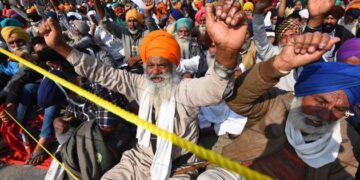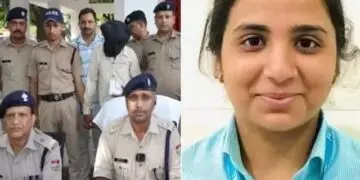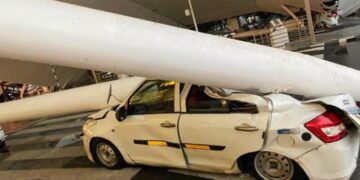
Tehran:
Ayatollah Ali Khamenei, the supreme leader of Iran, has given the order for Iran to attack Israel directly in punishment for the death of Ismail Haniyeh, the head of Hamas, in Tehran. The New York Times reported on this order, citing three Iranian officials who were briefed on it, including two Revolutionary Guard officers.
The directive came from Khamenei during an emergency meeting of Iran’s Supreme National Security Council on Wednesday morning, not long after Iran declared Haniyeh’s death.
Israel has been charged with the assassination by Iran and Hamas. While in Tehran for the installation of Iran’s new president, Haniyeh was killed. Israel, which is at war with Hamas in the Gaza Strip, has neither confirmed nor denied this.
According to the NYT, Israel has a notable history of assassinating adversaries abroad, including Iranian military officers and nuclear scientists.
Iran has attempted to achieve a balance over the nearly ten months of fighting in Gaza by increasing pressure on Israel through its friends and proxy forces in the area, all the while preventing a full-scale conflict between the two countries.
Iran launched hundreds of missiles and drones in April in retaliation for an Israeli raid on its embassy compound that killed senior Iranian military leaders in the Syrian capital of Damascus. This was Iran’s largest and most overt attack against Israel.
“At this point, it’s unknown how strongly Iran will react and whether it will again adjust its attack to prevent escalation. The Iranian authorities stated that while they would make a point of avoiding strikes on civilian targets, Iranian military commanders are thinking about carrying out another drone and missile combined attack on military objectives close to Tel Aviv and Haifa.
One possibility being explored is a concerted Iranian attack.
For best impact, they stated, it should be in areas with allied forces, such as Yemen, Syria, and Iraq.
According to the officials, military commanders of the Revolutionary Guards and the army have been instructed by Khamenei, who is the commander in chief of the armed forces and has the final say in all matters pertaining to the state, to make plans for both an attack and a defense in the event that the war escalates and Israel or the US strikes Iran.
“We see avenging his blood our duty,” Khamenei said in a public statement following Haniyeh’s murder, indicating that Iran would take direct revenge for the incident occurring on Islamic Republic territory. He claimed that Israel had prepared the ground for “a severe punishment,” according to the New York Times.
Other Iranian officials, such as the foreign ministry, the Guards, Iran’s representation to the UN, and the recently elected president Masoud Pezeshkian, publicly declared that Iran would take revenge on Israel and that it had the right to defend itself against an infringement on its sovereignty.
What they refer to as the “axis of resistance” is made up of Iran and the regional forces it supports, including Hamas, Hezbollah in Lebanon, the Houthis in Yemen, and various militias in Iraq.
The leaders of those organizations were present in Tehran on Tuesday for Pezeshkian inauguration.
At around two in the am (local time), Haniyeh was killed after going to the ceremony and having a meeting with Khamenei. Iranian officials were appalled by the incident and said it crossed red lines.

The leaders of those organizations were present in Tehran on Tuesday for Pezeshkian’s inauguration.
At around two in the am (local time), Haniyeh was killed after going to the ceremony and having a meeting with Khamenei. Iranian officials were appalled by the incident and said it crossed red lines.
The New York Times claims that Iran, which is keen to demonstrate its might but hasn’t been able to stop Israel from conducting covert operations on its territory, was humiliated by the security lapse. Haniyeh’s notoriety, the presence of other associates, and the fact that he was attacked at a heavily guarded Revolutionary Guards guesthouse on a day when capital security was heightened all contributed to his shame.
Also Read: http://delhi-heavy-rain-update
It also stated, quoting analysts, that Tehran believes that retaliation is required to both exact revenge for Haniyeh’s death and serve as a warning to Israel not to kill any more of its formidable adversaries, such as Hassan Nasrallah, the leader of Hezbollah, or General Ismail Qaani, the commander of the Quds Forces, who is in charge of the militant organizations operating outside of Iran.
According to Ali Vaez, the director of the International Crisis Group for Iran, “Iran likely believes it has no choice other than retaliating to deter further Israeli attacks, defend its sovereignty, and preserve its credibility in the eyes of its regional partners.”






































